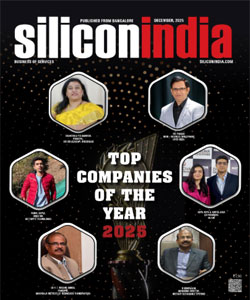Emerging Technologies Unveiled: Vamsi Thatikonda's Perspective on Robotic Process Automation

Robotic Process Automation (RPA) has emerged as a game-changer, revolutionizing operations across various sectors such as banking, healthcare, and retail. With its potential to drive efficiency gains and transform business processes, RPA has become a focal point for industry leaders seeking to stay ahead of the curve. One such visionary is Vamsi Thatikonda, a renowned expert in emerging technologies.
Vamsi firmly believes that the application of RPA can unlock vast productivity benefits by extending automation to additional business processes. However, he acknowledges that the journey towards widespread RPA adoption is not without its challenges. He emphasizes the need to overcome organizational resistance and address the lack of technical skills among employees.
Vamsi Thatikonda is a senior software engineer at one of the leading online retail stores in the USA and a tech leader in the modern IT landscape, with affluent expertise in diverse verticals including RPA, Web services, and more. "One of the key hurdles in implementing RPA is the resistance from organizations to embrace change," he remarks. "To ensure a smooth integration, it is crucial to invest in change management initiatives and comprehensive training programs. By empowering employees with the necessary skills, organizations can maximize the potential of RPA."
As RPA solutions continue to evolve and incorporate artificial intelligence (AI) capabilities, they are poised to take on an expanded scope of responsibilities beyond repetitive tasks. This intelligent automation has the potential to revolutionize industries even further. However, Vamsi Thatikonda emphasizes the importance of responsible development to avoid any detrimental impacts on the workforce or society as a whole.
"While the advancements in RPA and AI are exciting, we must ensure that these technologies are developed responsibly," cautions Thatikonda. "Ethical considerations should be at the forefront, and organizations must remain vigilant to prevent any unintended consequences. Striking the right balance between automation and human involvement is crucial."
Despite concerns over job displacement due to automation, Vamsi Thatikonda believes that RPA will create new employment opportunities. While some roles may become obsolete, new job types will emerge, requiring a different set of skills. To fully leverage the potential of RPA, organizations need to prepare the future workforce.
"It is crucial to equip the future workforce with the necessary skills to leverage emerging technologies such as RPA," states Thatikonda. "By investing in upskilling and reskilling programs, we can ensure that individuals are well-prepared to seize the opportunities presented by automation. This will not only benefit individuals but also contribute to the overall growth of industries."
In conclusion, Vamsi Thatikonda's perspectives on Robotic Process Automation shed light on the immense potential of this emerging technology. While acknowledging the challenges of adoption, he emphasizes the importance of change management, responsible development, and workforce preparation. As RPA continues to transform industries, it is crucial to embrace these insights and navigate the future with a well-informed approach to automation.



